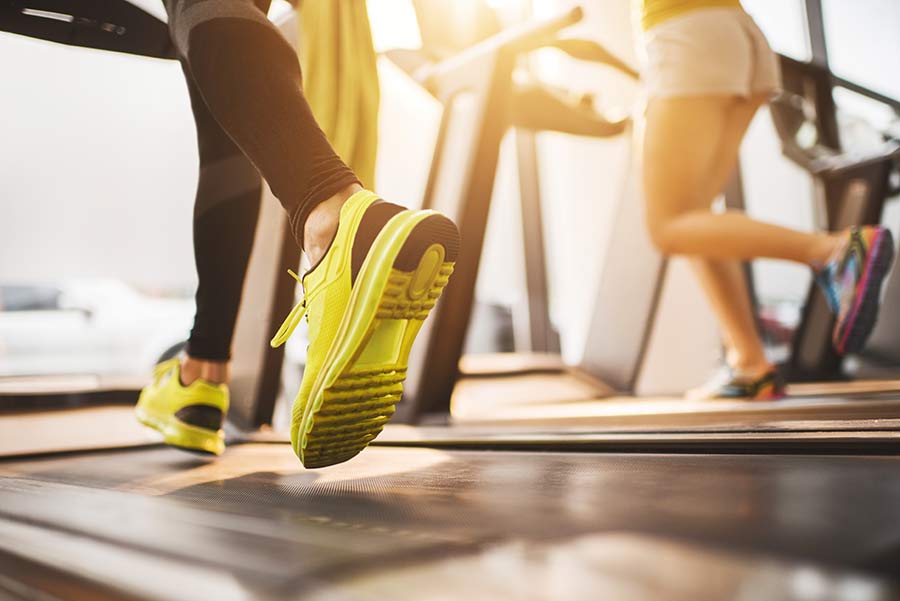Read the latest and greatest from our team
of incredible specialists.

Beach House Recovery Center » Blog » The Impact of Health and Fitness on Your Recovery, According to the Experts – A Recap of Our March Live Event
How do health and fitness impact your recovery? Last week we invited two health and fitness gurus who co-specialize in addiction to answer that question, as part of our monthly Facebook Live series:
The wide-ranging discussion, which aired Friday, March 30, at 3:30pm, covered the ABC’s of a healthy lifestyle for people in early recovery and their loved ones, but also touched on other issues. Among them: supplements and which ones are good to take in early sobriety, and the health risks of steroids for people with an addiction history. Catch the highlights of last Friday’s discussion below. Or, tune in for the unabridged conversation.

Our very own Micah Robbins, who facilitated the panel, kicked off the conversation by asking Scuderi and Davis to share the biggest health issues they see among people in early recovery. The resounding consensus was poor diet and the need to exercise—both of which can be intimidating to address when you’re not accustomed to thinking about either during active addiction.
Scuderi and Davis acknowledged as much but went on to make the case that anybody can make small, incremental changes towards better nutritional health and physical fitness.
Scuderi said that when a client in early recovery seeks his help, his approach is “to emphasize some of the basics. Clean up your diet. Get you moving. Get off the couch and into a room where there’s a trainer, some weights and exercise equipment. Start off really slow.”
By “slow,” that means starting wherever you are and building from there. It may also mean changing your vocabulary. Davis elaborated: “The biggest thing I do right off the bat with anyone in recovery is get away from the word ‘fitness.’ I replace it with ‘activity.’ Going outside. Walking around your house a few times … Getting some light. Anything to get some motion going. When you’re zoned out or passed out … the last thing you’re doing is anything nutritionally wise.”
The word, ‘nutrition,’ is another term that Davis prefers to avoid with clients in early recovery. Instead, he talks about “eating something with substance in it. Positive anything is the initial goal with anybody I talk to.”
Davis explained that sometimes “positive anything” may mean introducing a daily meal routine, which for many people in active addiction is a foreign concept. Often drugs or alcohol have so displaced healthy habits that “99 percent of people I talk with in early recovery don’t eat breakfast,” according to Davis. “If they eat, it’s only one meal a day.”
Davis therefore encourages clients to get into the regular routine of eating a daily breakfast—even if it means starting with soda and candy bar for this most important meal of the day. Once you have the routine in place, he said, it’s easier to make the change to more nutritional breakfast choices.
The mantra that Scuderi uses with clients is “You are what you eat.” If getting there takes baby steps, that’s okay.
Chronic pain is often the initial impetus to see a doctor for pain meds, but many of these meds may be the highly addictive opiates that are driving today’s overdose epidemic. That fact should make alternative pain management strategies a first response, Scuderi said. Using the example of back pain, which he said affects 80 percent of Americans at some point in their life, he emphasized the importance of a strong core: “If your core is strong, you’re going to have less back pain.”
To get there, he suggested practicing an exercise known as “the plank,” which is “like a push-up” except that the idea is to hold yourself in an elevated push-up position—Scuderi recommended starting at a 10-second hold—while keeping a straight back. “You can do this every day and it’s extremely effective.”
Scuderi and Davis were quick to offer other suggestions for building a stronger core and reducing chronic pain:
In addition to these strategies, massage, pilates and acupuncture are other helpful holistic answers to chronic pain, according to Scuderi.
What supplements should you take during early recovery? And how safe are steroids? These and other questions generated some helpful responses from our two featured experts. Hear their insights. Or, check out these related articles in our Learning Center:
Check out our other past live events at our Facebook page – Beach House Center of Recovery.
Whether you’re researching for yourself or a loved one, Beach House can help. We understand that this is a serious time in your life and that the treatment center you choose matters. We want you to feel comfortable and empowered to make the right decision for yourself, a friend, or a family member. This is why a counselor is waiting and available to answer your questions and help put your mind at ease regarding the next steps. Many of the staff at Beach House have walked in your shoes. If you feel you’re ready or want more information about how to help a loved one, we can help today. You can also learn why we are voted the #1 rehab for addiction treatment in Florida.
We accept most major insurance plans and can verify your benefits quickly and confidentially.
We’re committed to helping you access the care you need, our admissions counselors can guide you through your coverage options and available resources.





"*" indicates required fields